On View
Show & Tell: The Artists of ‘Engender’ Are Reimagining How Painters Depict Gender
The show opens this week at LA’s Kohn Gallery.
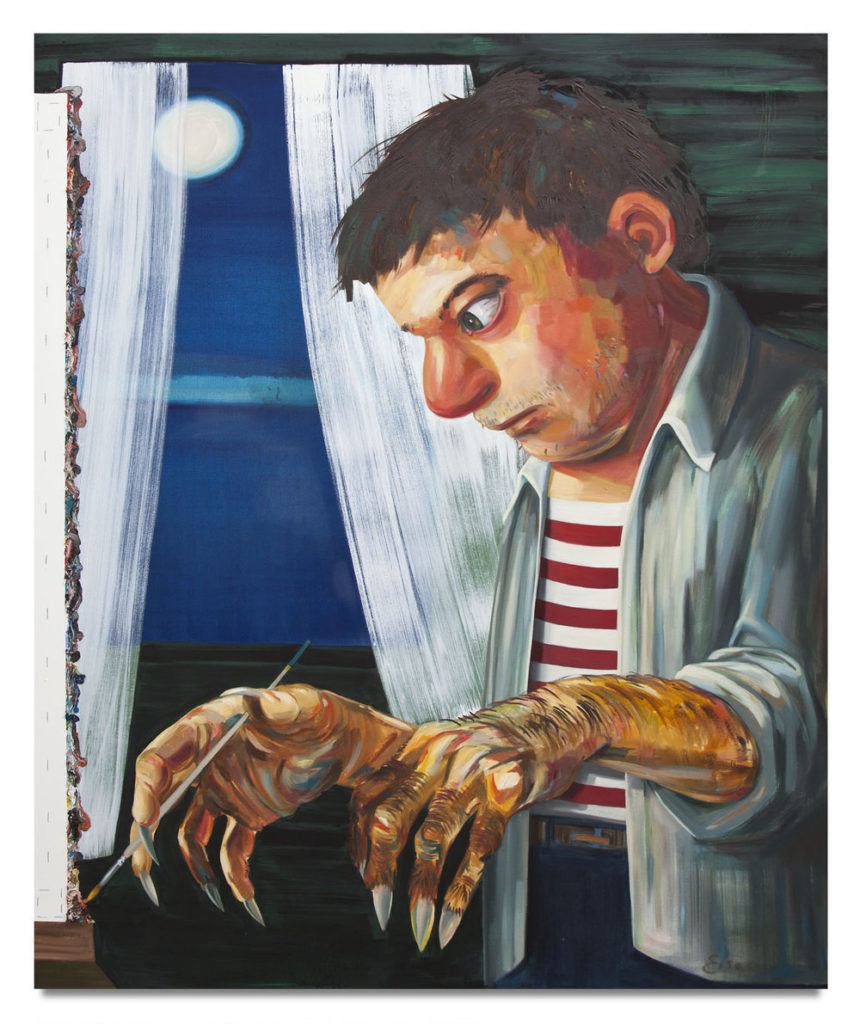
The show opens this week at LA’s Kohn Gallery.

Henri Neuendorf

How do we paint gender? And how might artists paint their way out of that constricting binary?
The 17 painters included in “Engender,” a show at Los Angeles’s Kohn Gallery, aim to tackle these questions. The artists, ranging from well-known figures like Nicole Eisenman and Hernan Bas to rising stars like Firelei Báez and Tschabalala Self, contribute to a conversation about how to expand and deconstruct the visual language of gender identity.
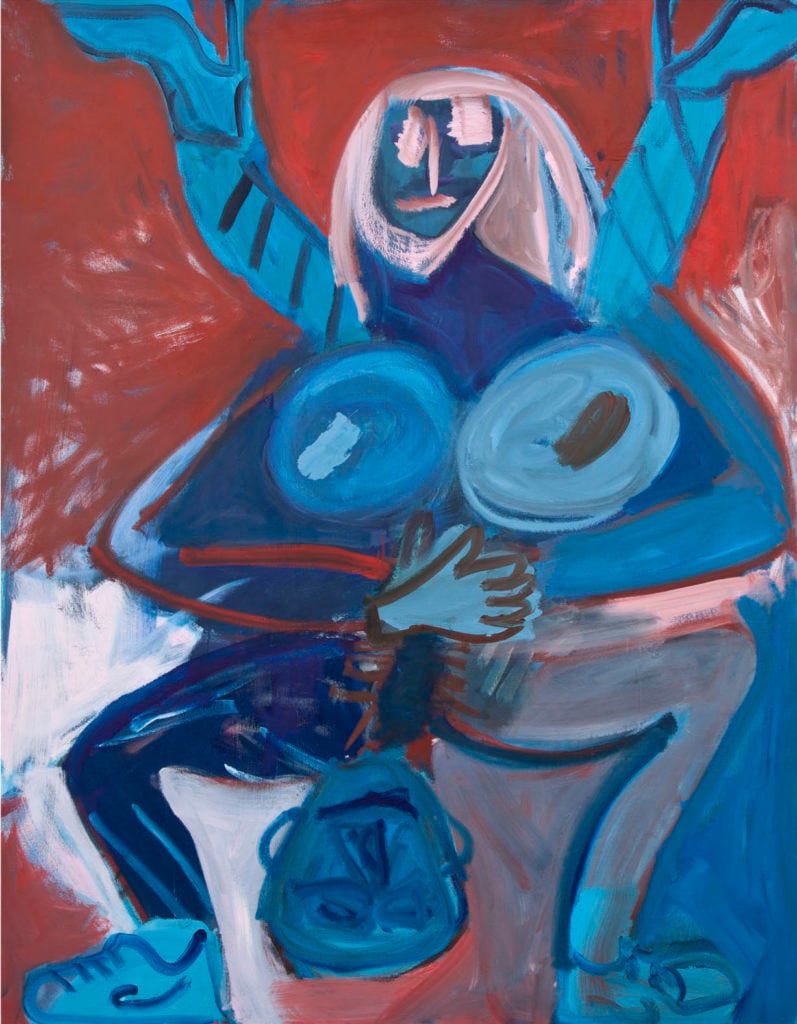
Sadie Laska, Untitled (2017). Photo courtesy of Kohn Gallery.
“I think the contemporary mindset doesn’t want to be classified,” the show’s curator, Joshua Friedman, an associate director at Kohn Gallery, told artnet News. “We’re looking at this through art and how not wanting to be confined into one of two categories is being portrayed by artists. The artists in the show are trying to break away from that.”
Don’t expect any one particular style, though. “Gender can exist in many different ways,” Friedman said. “You’ll see that no two works look the same. The artists all go about this very differently.”
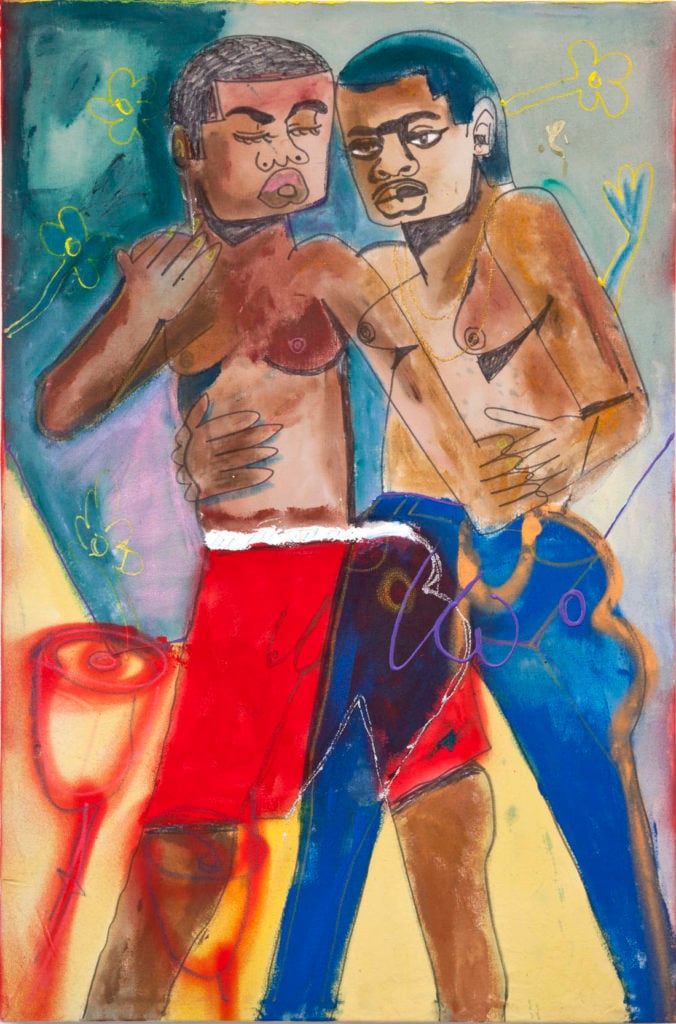
Jonathan Lyndon Chase, Day dreaming (2017). Photo: courtesy of Kohn Gallery.
Thus, Sadie Laska’s expressionist paintings feature abstracted, genderless figures in frenzies meant to suggest “avatars and icons emerging from the basic problems surrounding identity in the digital age,” notes a gallery statement.
Jonathan Lyndon Chase’s figurative paintings, meanwhile, center on fractured images of black queer men, muddling the sense of the picture plane and the codes of masculine and feminine at the same time.
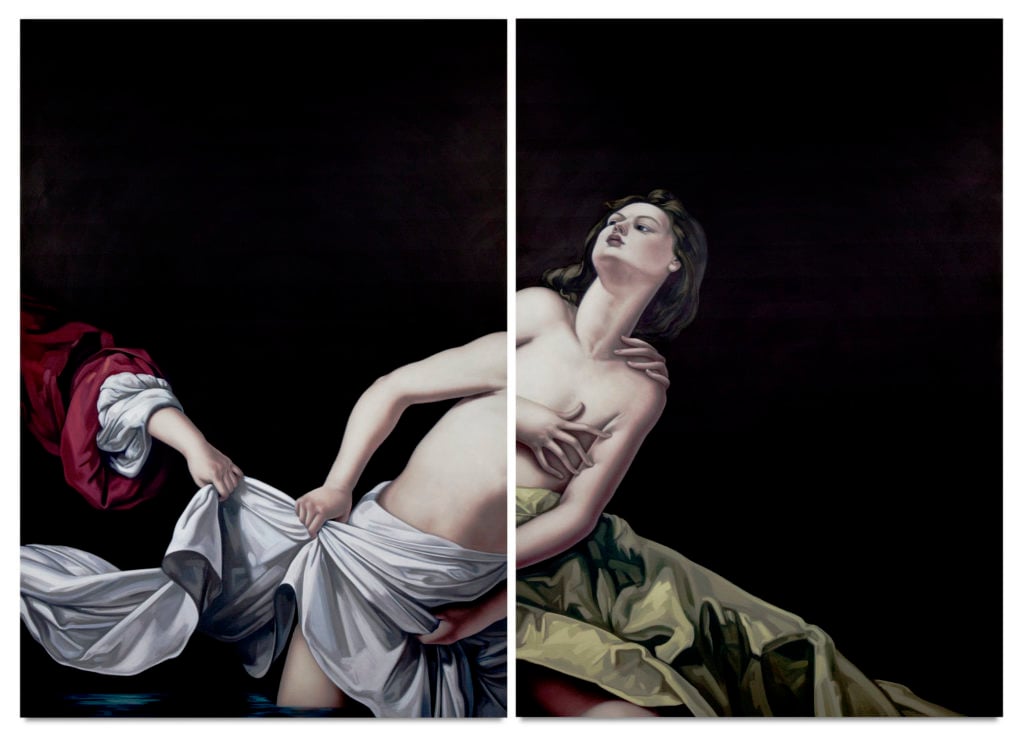
Jesse Mockrin, A cymbal crashed, and roaring horns (2017). Photo courtesy of Kohn Gallery.
Jesse Mockrin’s oil-on-canvas compositions are sharp riffs on the visual language of Rococo portraiture that imagine new, androgynous, or unisexual protagonists.
“I think it’s an area that’s not been given enough exposure, but it’s a very timely topic, politically,” Friedman said. “Hopefully this moment can lead to a dialogue, as more shows happen.”
See other highlights of the show below.
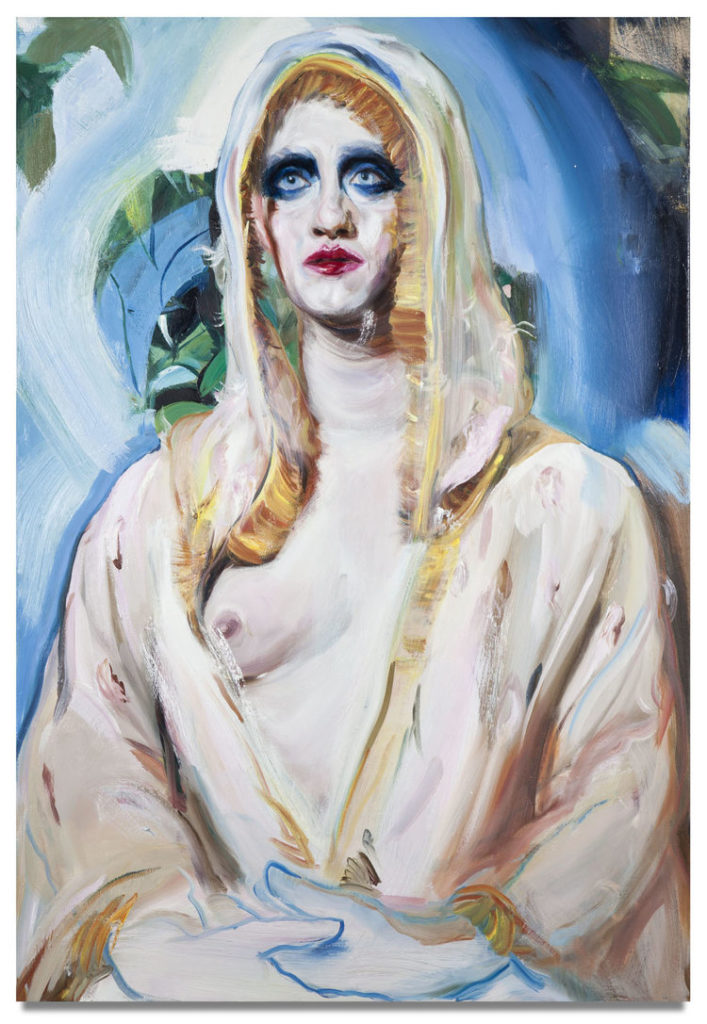
Natalie Frank, Tyler, 2017.
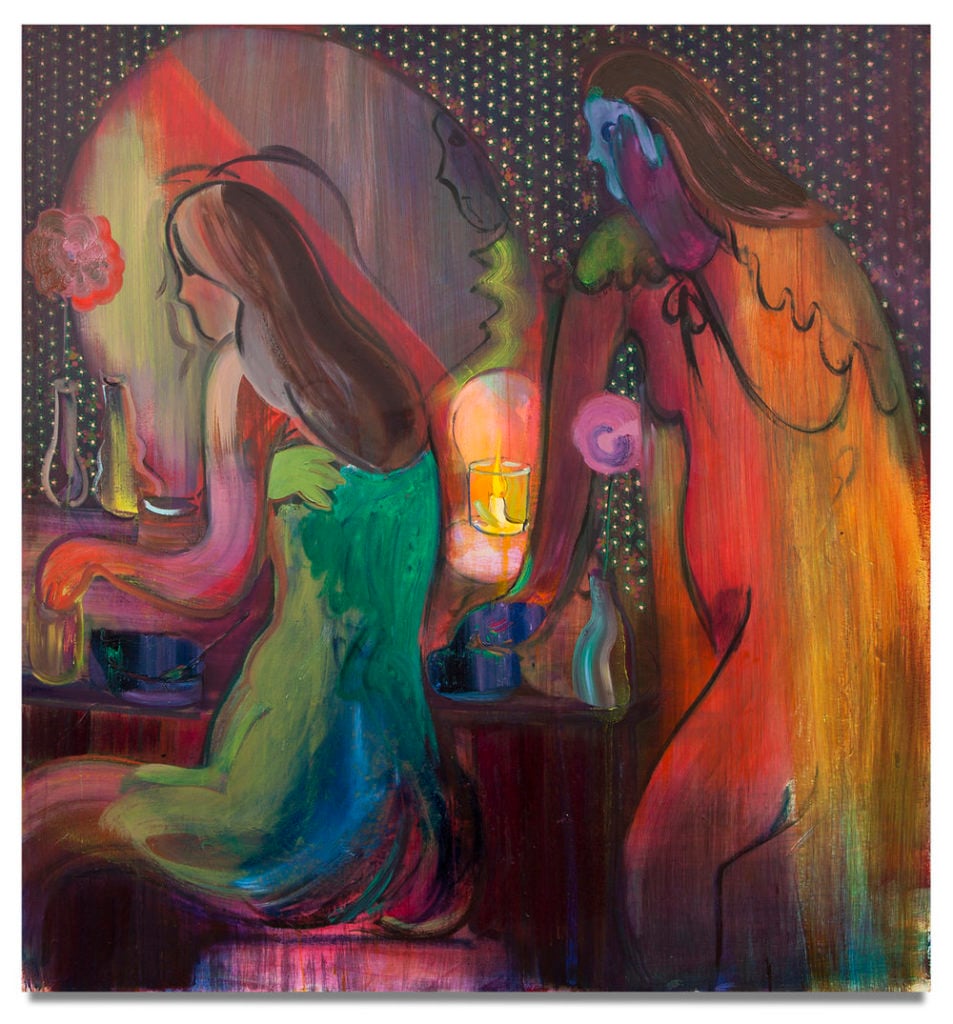
Heidi Hahn, The Same Kind of Story Told Backwards 1 (2017).
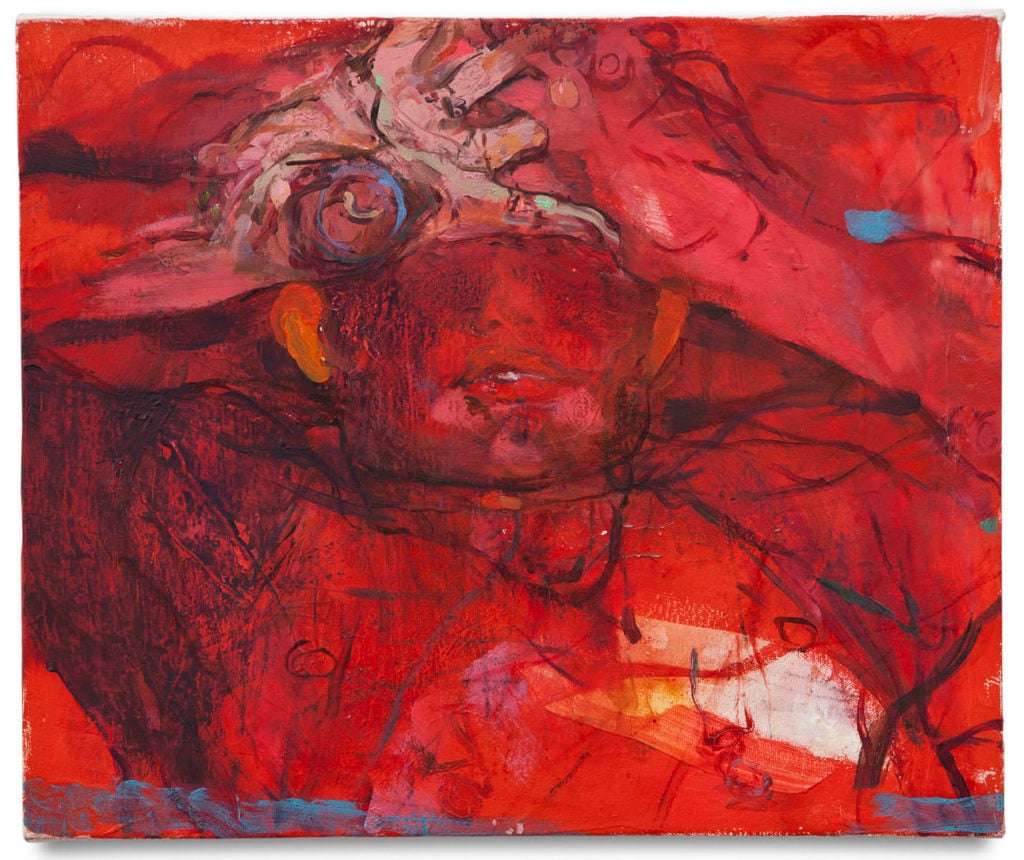
Jennifer Packer, Untitled (2017).
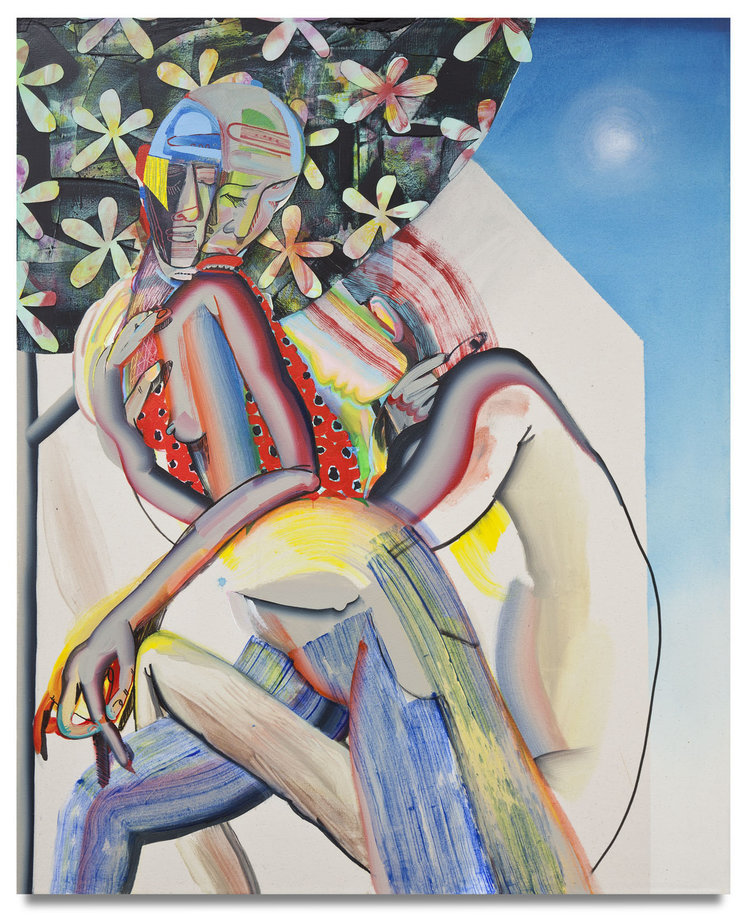
Christina Quarles, Turnt Around (2017).
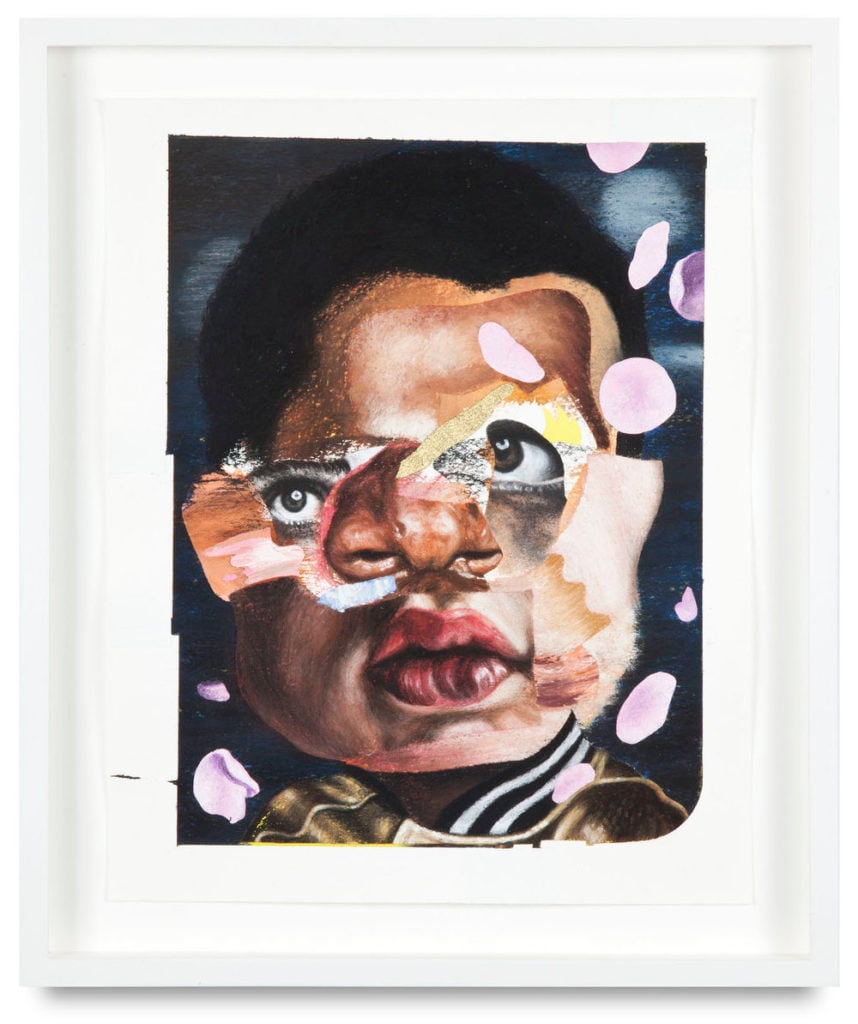
Nathaniel Mary Quinn, Chad (2017).
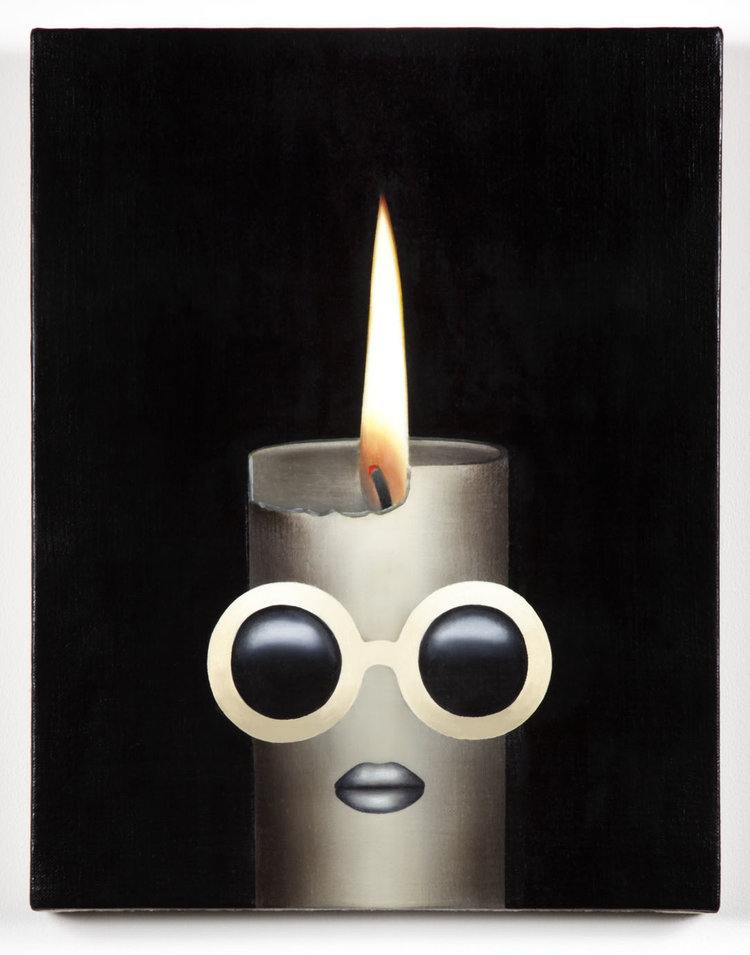
Emily Mae Smith, The Caress study I (2017).
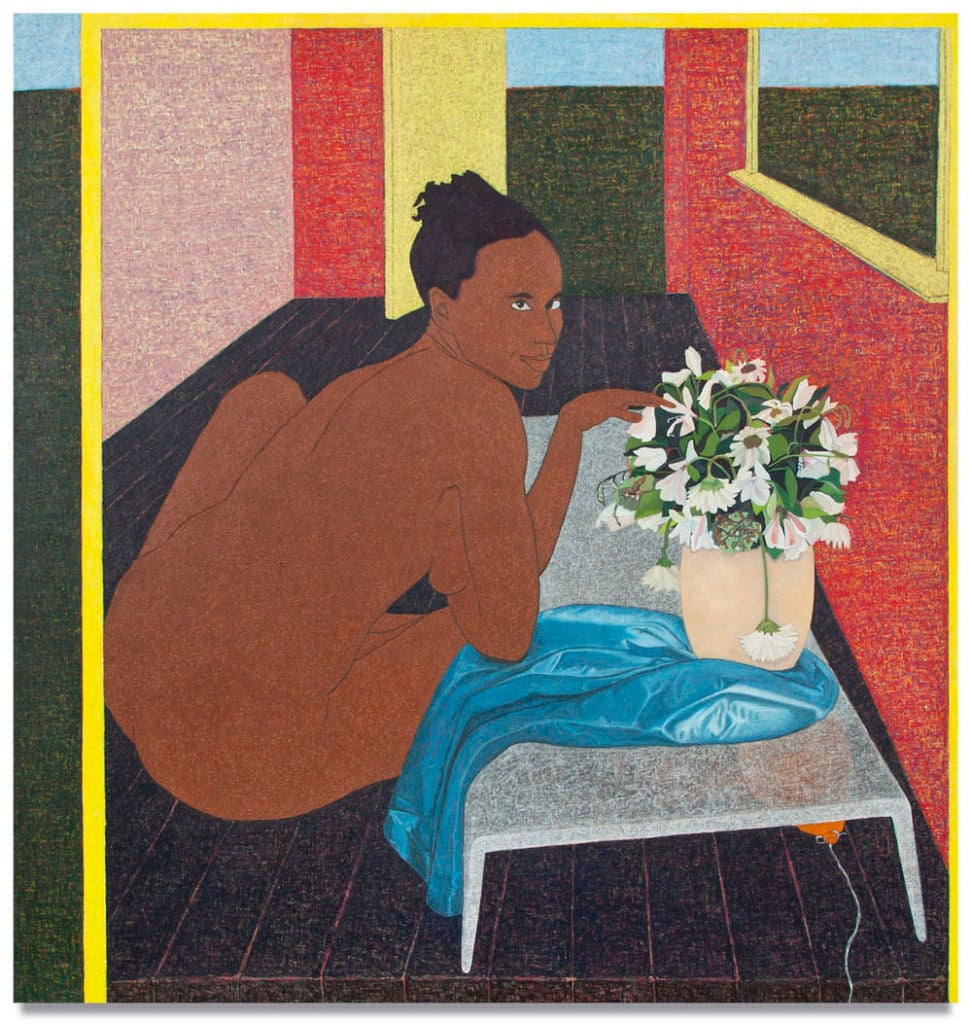
Mequitta Ahuja, Fingering Vanitas (2015).
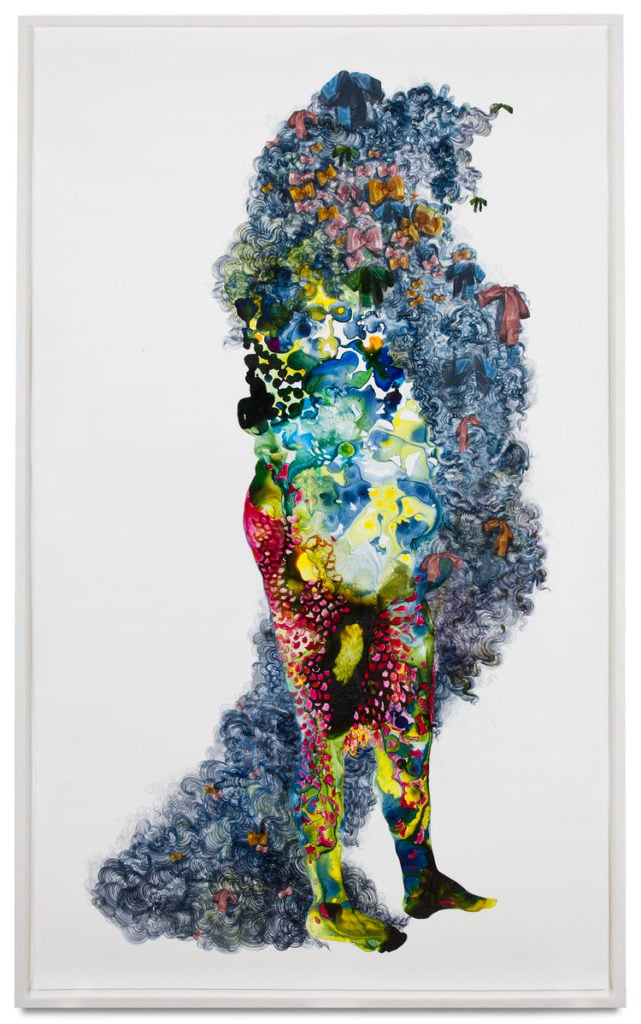
Firelei Báez, Untitled (2017).
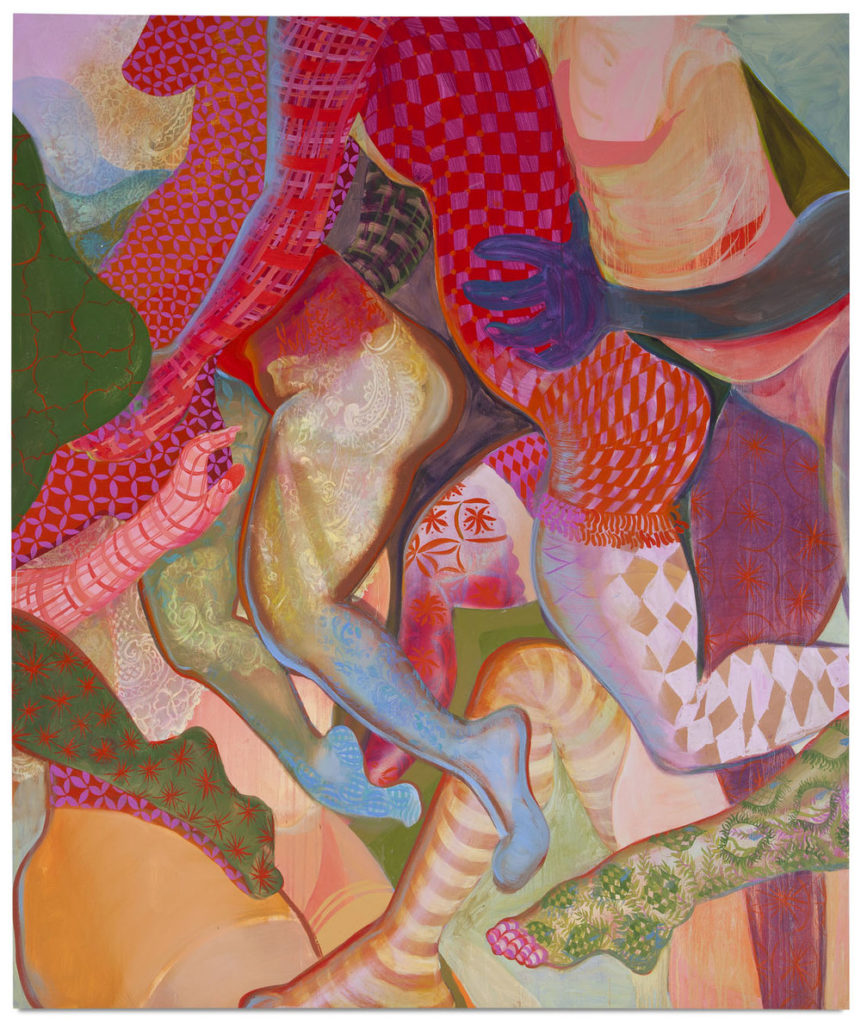
Firelei Báez, Untitled (2017).
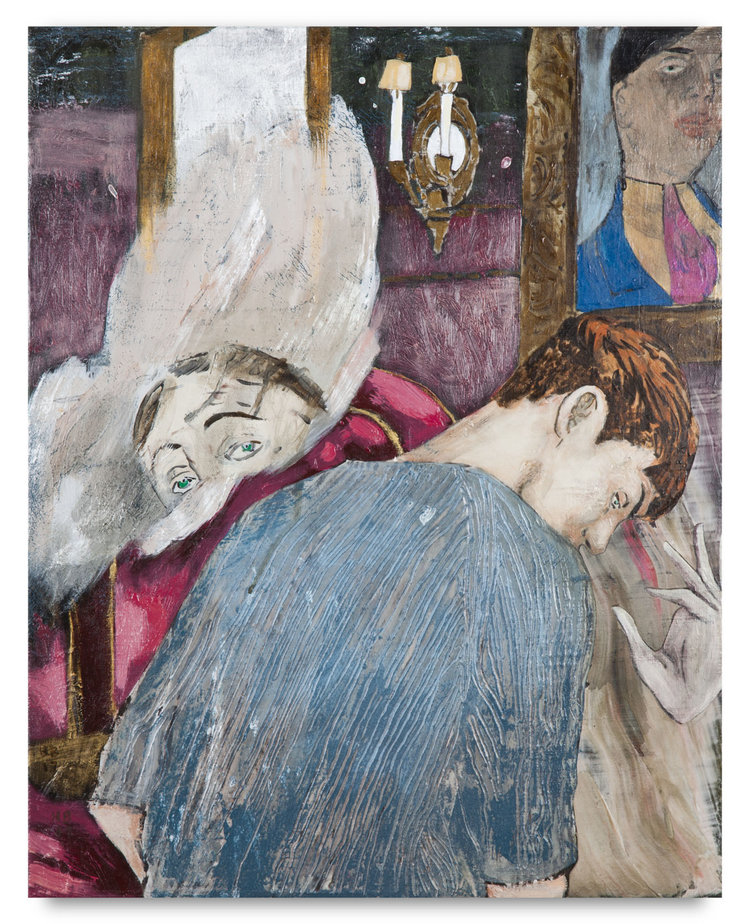
Hernan Bas, A hypnotic suggestion (2017).
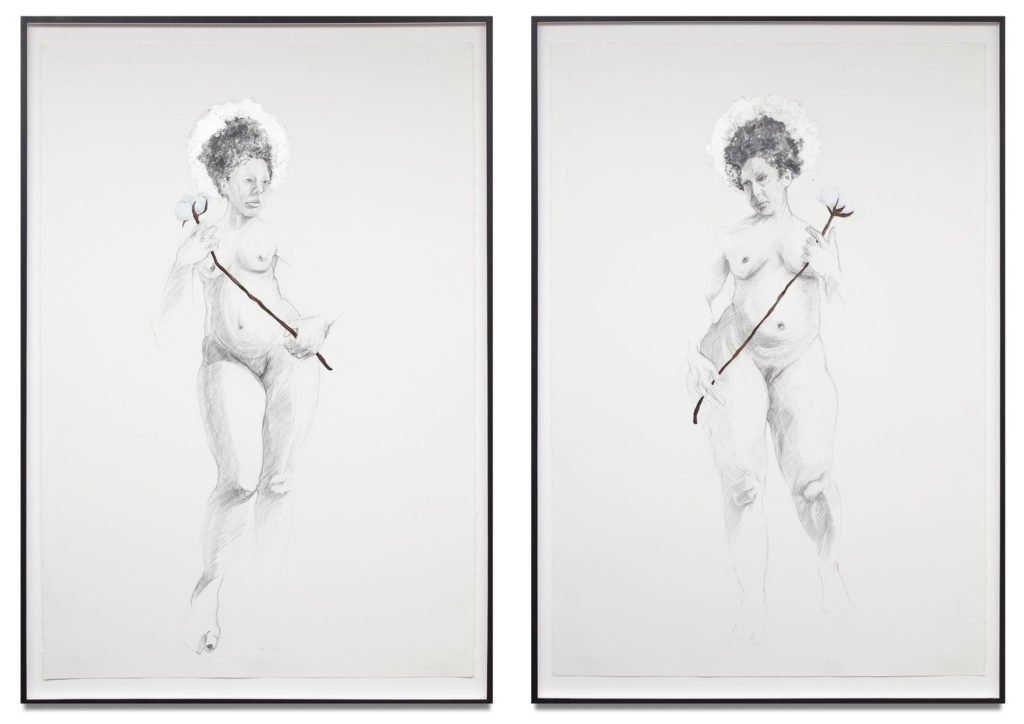
Zoë Charlton, Cotton Series 2 & Cotton Series 3 (Diptych) (2009).
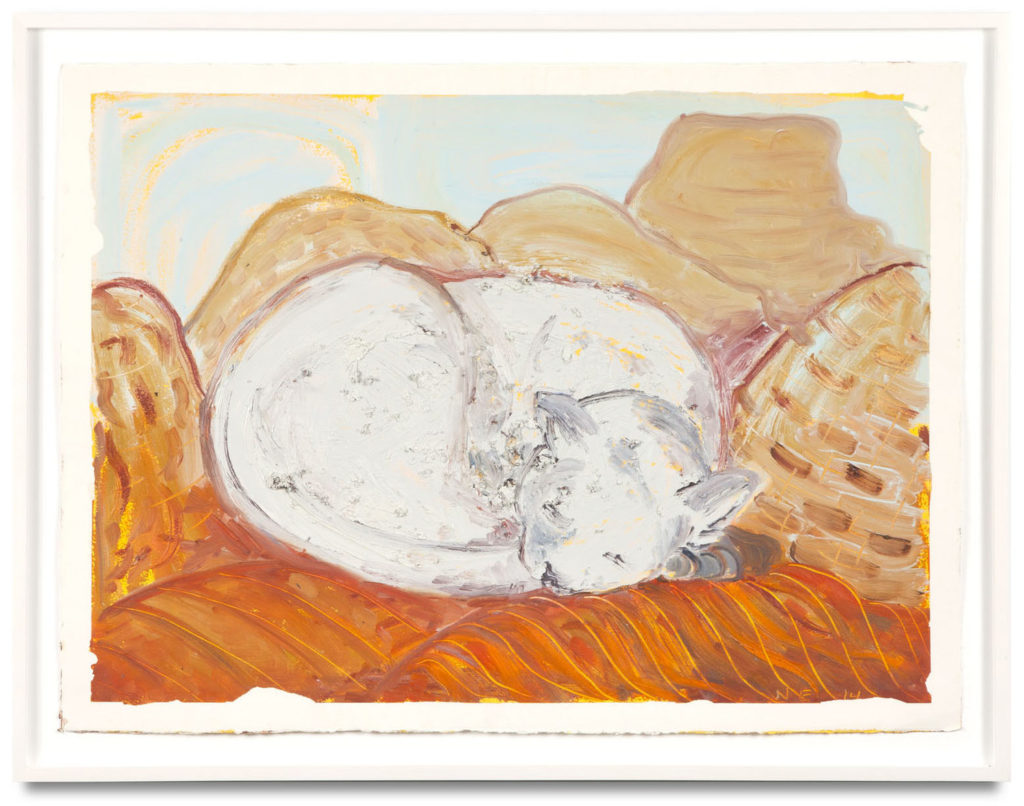
Nicole Eisenman, Cat (2014).
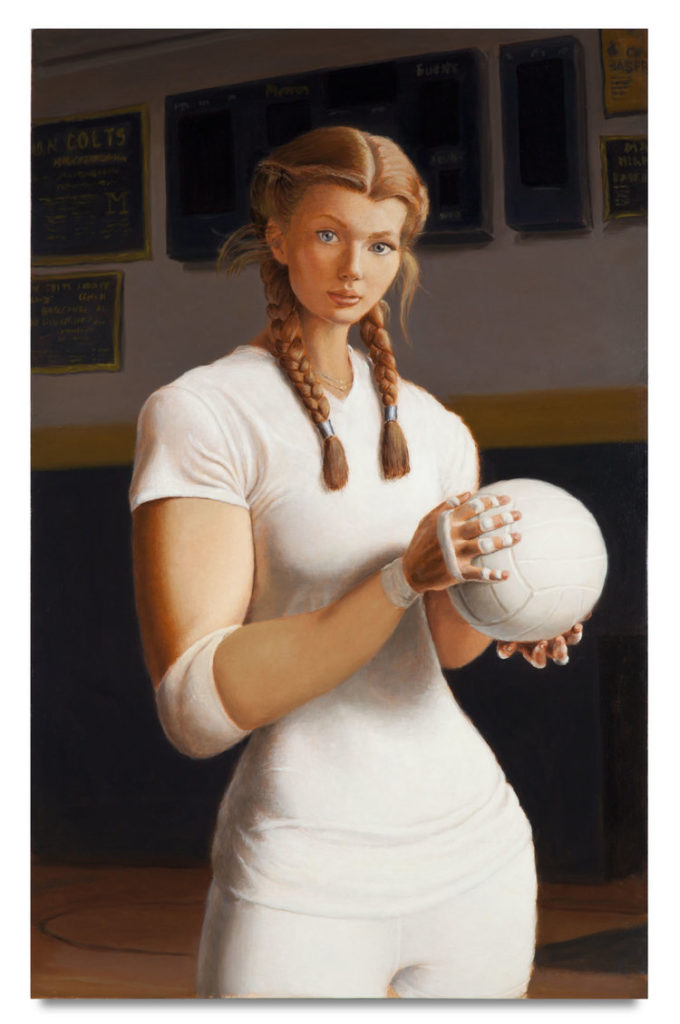
Jansson Stegner, Julie (2017). Image courtesy Kohn Gallery.
“Engender” features artists Mequitta Ahuja, Firelei Báez, Hernan Bas, Zoë Charlton, Jonathan Lyndon Chase, Nicole Eisenman, Natalie Frank, Heidi Hahn, Loie Hollowell, Sadie Laska, Jesse Mockrin, Jennifer Packer, Christina Quarles, Nathaniel Mary Quinn, Tschabalala Self, Emily Mae Smith, and Jansson Stegner. It is on view at Kohn Gallery, 1227 North Highland Avenue, Los Angeles, November 11, 2017–January 13, 2018.